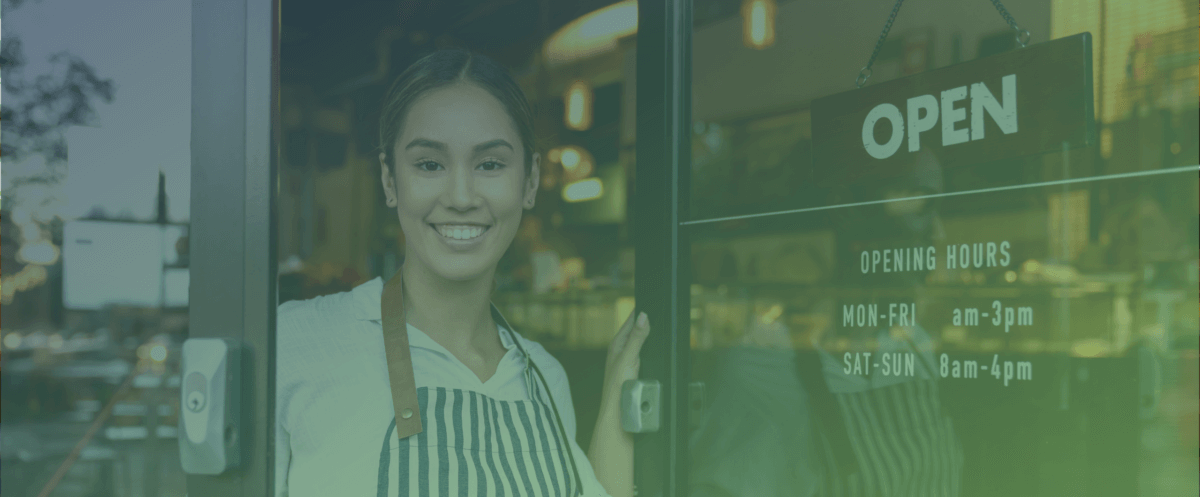The process of opening a new restaurant can be exciting, yet overwhelming. The food service industry is a fast-paced environment, and competition can be fierce. Maybe you are new to the industry all together or maybe you are one of the 8 in 10 restaurant owners who started their industry careers in entry-level positions. When considering starting a new restaurant, restaurant owners need to consider all the challenges and variables that come with successfully opening and operating.
Here are 10 things you need to know before opening a new restaurant:
Find Your Concept
You want to catch the attention of your customers — that all starts with a catchy name and a concept for your space. The power that a memorable restaurant could have can help increase your sales and customer base. Coming up with a name that pairs well with your restaurant theme will help reflect what you will bring to the table and lingers on the customer’s mind. This helps generate word-of-mouth promotion for your space, attract future customers, and stand out on local business directories and maps.
Strategize Your Business Plan
It’s time to lock down your plan! Your business plan is your roadmap to the start and success of your restaurant. This detailed business plan should be the foundation of your operations that you will use to show your investors your vision. The executive summary, food safety plan, sample menu, financial plan, and more should all be laid out and ready to go to help win those over who will help set you up for success.
This step is all about thinking thoroughly and ask yourself the big questions — refining questions like:
- Who is your restaurant for?
- What resources will you need?
- How long will it take to turn a profit?
- What is your staffing plan?
Look at the Location & Competition
Where do you see your restaurant? Whether you’re thinking about setting up in uptown, downtown, or in a popular neighborhood, it’s all about location, location, location!
This is the time to do research on the area you are considering. Look at the history, size, and visibility of the location. If the area has a popular demographic that fits your target market and ideal customer profile, it can be perfect for you and your needs. An important aspect to also look for is how did the previous tenants perform and who were they? Is that space currently somewhere you can build up to your vision?
Don’t forget to think about your competition — but don’t underestimate them. Are you in a good area to compete or even drive customers to your business? Has there been a long-standing business in the area that will offer the same interests as your restaurant and if so, how can you differentiate yourself from them? These are great questions to go out and scout before locking down an investment.
Secure Your Capital
Let’s be real here — opening a restaurant isn’t cheap. No matter if you are franchising, partnering, or opening solo; there are several options to gain capital. The average cost to opening a restaurant is $375,000, although this depends on factors such as location, size, decor, and inventory (and that’s just to name a few.) You should explore and research loans or investments that can help you cover equipment and technology that is essential for operations. Capital can include working capital loans for when you have more expenses than income, lines of credit for future expenses, U.S. small business administration (SBA) loans, term loans, and equity.
Building capital also includes building a team of professionals. This team can help have your back when there’s situations that you can’t handle on your own or “need to know” questions arise. A good attorney to help with business structure, paperwork, contracts and permits can be a huge help to swiftly complete the process. Insurance agents are key to helping insure your business for general liability, commercial property damage, worker’s comp, and liquor liability.
Identify Your Legal Structure
This is the time to select a business entity type for your restaurant. Choosing a sole proprietorship, partnership, C-Corporation, S-corporation, or Limited Liability Company (LLC) is key for impacting how you will file for state and federal business taxes, team roles, and how liabilities will be handled. If you are using a unique name for your restaurant, it is important to establish who you will be Doing Business As (DBA). DBA’s help to ensure you from losing your name idea to other businesses.
There are also items such as registering your restaurant for state and local taxes which you will need by obtaining an Employer Identification Number (EIN). This number will register you with the IRS — allowing you to pay for your business, generate legal income, and pay employment taxes for your restaurant. Having an EIN number can also help you in the process of securing food licenses, health department permits, certification of occupancy, and restaurant insurance.
Design a Memorable Menu
Although all the technical items are needed to get you up and running your restaurant, you can’t forget the main ingredient — the menu options! Customers are coming in to see what you have to offer. By carefully planning your menu and complementing your menu design to your brand, you can ensure customers have options to stick to or switch it up. Opt for seasonal items on your menu that utilize unique parings with house specials and cocktails. It will get people talking and wanting to come back for more! If you put time and effort into your menu, it can be a key marketing tool to help gain new and regular customers.
Hire the Right Staff
Identify how much staff you will need to successfully run the front and back of your restaurant efficiently. When hiring staff, look for a good mix of personality and experience that you believe will reflect the intent of your restaurant. These employees are extensions of the brand. If you make your restaurant a great place to work, it will attract new staff and help you retain staff which will help your business thrive in the long run.
Get the Right Equipment
Getting a hold of a restaurant management system (RMS) is essential to help any new restaurant in this day and age. These systems can help you keep your restaurant running by tracking and scheduling employees as well as keeping tabs on inventory and sales. RMS encompasses all back-end needs making the work more efficient. RMS can pair well with point-of-sale (POS) software systems that are designed for restaurants and more. These can help with online ordering, reporting, analytics, contactless payment, and order-and-pay-at-the-table technology.
Market Your Restaurant
You now have all the items you need to get your restaurant running, but how do you attract the attention needed to get people in the door on day one? Start by marketing your business by creating a website that includes your branding, location, contact information, and menu options. You can also set up a business profile which you can fill with menu items, photos and more. This is an easy way for people to be able to find you with a quick search.
Social media is a large aspect of our lives, and having a continuous social media presence will help drive people to your restaurant. The social brand should translate to your restaurant’s brand design and concept. Keeping up on social media is also a great way to promote happenings at your restaurant such as pop-ups, specials, takeout options, or even seasonal menus that can be shared.
Launch Your Restaurant
You’ve put a ton of work into the process and now it’s time to launch your restaurant. If you want, you can start with a soft opening and invite some locals to come by to try your new menu. Soft openings are a great way to get the kinks sorted out before the grand opening, create a buzz, and allow you to get early feedback and refine restaurant logistics.
It’s expensive, time-consuming, and a little exhausting to open a new restaurant, but the final result makes it all worthwhile. Being able to make delicious meals, help create memories, and be a staple of your town are all things that justify your investment. Enjoy your new restaurant and the excitement of being a restaurant owner! And if you’re ever feeling stuck as you continue your journey, we’ve got your back to help you out.




